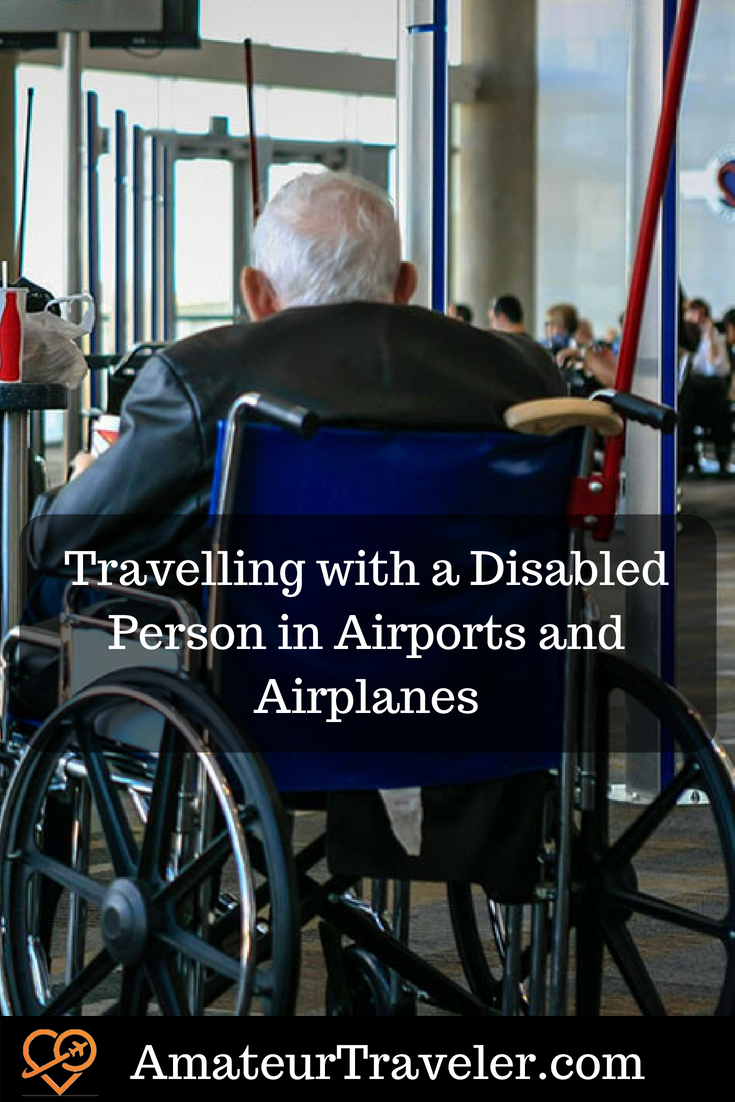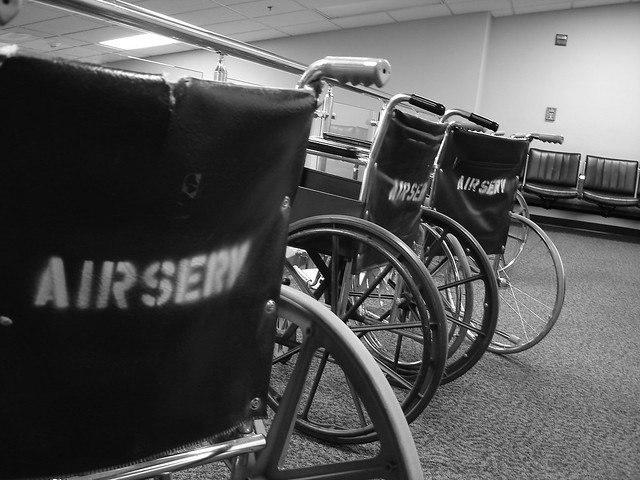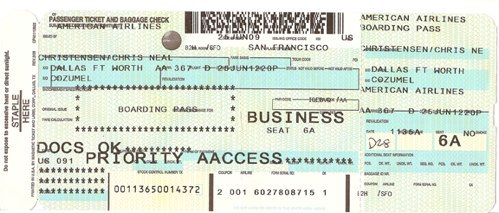When planning a holiday for, or with, a person with a disability, often the first obstacle is the flying part.
It’s bad enough for the non-disabled traveler; what with the endless queuing, interminable waiting and cramped seating. But if you or your companion is in a wheelchair the whole enterprise might start to seem impossible.
With more and more wheelchair travelers taking to the skies you would think that airlines would be doing all they could to embrace this growing sector of passengers.
Sadly, despite the legislation which is designed to guarantee the rights of people with disabilities to an accessible and dignified flight. Stories of incompetence, indifference or ignorance are still far too common. But don’t panic, the best way to ensure a stress-free flight is to plan ahead and know your rights and thankfully, there’s plenty of help out there.
Know Your Rights
Knowledge is power, so start reading up with Direct gov’s webpage for disabled travelers which gives you an overview of your rights, then for the detail consult Your Rights to Fly, a short guide published by The Equality and Human Rights Commission. These sources will give you the ammunition you need to start planning your flight with confidence.
Don’t forget, the law applies to the whole of the air travel process, not just the flight itself. It covers things like booking your flights, arriving at the airport, checking in, getting on and off the plane and leaving the airport. What’s more, tour operators and travel agents are obliged by law to pass information about your needs to the airlines, and they, in turn, must inform the airports of the individual services required.
If you’re unsure of your rights I’ll run through a few that you are most likely to find useful here:
- Any kind of information that is available for other passengers must be made accessible to those with disabilities (braille, sign language).
- It doesn’t matter if a disability might ‘offend’ or ‘irritate’ other passengers it is still a disabled person’s right to fly – though they may be refused boarding if the pilot feels their disability endangers the health and safety of other people.
- Airports are obliged to provide fully accessible facilities such as accessible toilets, parking, medical facilities, ramps, and chair lifts, etc.
- Airlines require an assistant to be present if a passenger is unable to look after themselves during the flight or if they have severe hearing, mobility, or visual impairments. Some airlines provide assistants but they are not obliged to do so, so check before booking.
However, if anything goes wrong you do have legal recourse. The Civil Aviation Authority (CAA) is responsible for dealing with complaints about airports and any airlines flying from them in the UK; whilst the Federal Aviation Administration is responsible for the same in the USA. They can advise you of your rights and what further legal action you can take. For instance, you may have the right to pursue a claim through the courts.

First things first, compare the arrangements offered by different airlines before making your booking. Be sure to check whether the cost of any special assistance is included in the price of your ticket because that will prevent any nasty surprises.
Secondly, inform your airline of your particular needs in good time. Check the policy of your airline if you wish to remain in your own wheelchair right to the aircraft door, rather than transfer to an airline wheelchair at check-in.
Remember that there are often long distances within airports and that this may mean that you will require assistance. Pre-arranging any necessary assistance will ensure that no time is lost in waiting for it to be arranged when you arrive which could lead to you missing your flight.
Thankfully, most modern airports have taken the concept of accessible travel seriously, so you are likely to have access to things like ramps, wider access pathways, disabled toilets, and designated seating areas.
Your new best friend
Once you’ve decided on when and where you want to go on holiday, it’s time to get acquainted with your new best friend – Flying with Disability. This fantastic website is your one-stop for all you’ll need to know and do when planning your flight. It really gives you peace of mind.
Cover yourself!
For a non-disabled person, travel can sometimes be fraught, but if you have a disability there is so much more to consider – and potentially so many things that could go wrong. That’s why travel insurance is a must. There are a number of specialist companies out there, so make sure you give yourself some peace of mind with an adequate policy.
As is recommended for anyone taking out insurance I highly recommend reading any small print to prevent you being caught out in your time of need.
Round-Up
And there we have it happy landings, dear traveler, and don’t forget the two golden rules – plan ahead and know your rights!
- Search for Great Tours HERE
- Buy Travel Insurance
- Get a Car Rental
- Book Your Accommodation HERE
One Response to “Tips for Travelling with a Disabled Person in Airports and Airplanes”
Leave a Reply
Tags: article, travel with disabilities


 10 Tips for Taking a Dog on a Plane
10 Tips for Taking a Dog on a Plane Tips for Saving Money on Airfare
Tips for Saving Money on Airfare Book Review – Air Travel Handbook – Tips, Tricks & Secrets on Flying
Book Review – Air Travel Handbook – Tips, Tricks & Secrets on Flying Travel Tips For Vegetarians
Travel Tips For Vegetarians

kori12
Says:May 10th, 2013 at 5:31 pm
This is great information for those wanting to travel with disabled family members or friends while in Europe. I have done it before and always thought that it could have gone alot better.